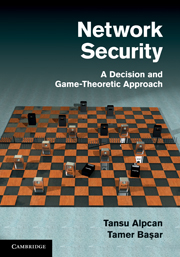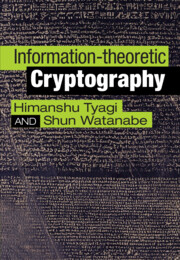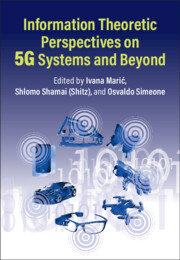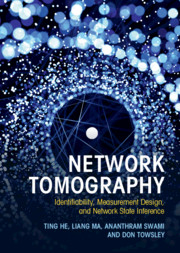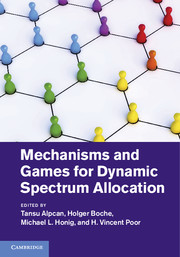Network Security
Covering attack detection, malware response, algorithm and mechanism design, privacy, and risk management, this comprehensive work applies unique quantitative models derived from decision, control, and game theories to understanding diverse network security problems. It provides the reader with a system-level theoretical understanding of network security, and is essential reading for researchers interested in a quantitative approach to key incentive and resource allocation issues in the field. It also provides practitioners with an analytical foundation that is useful for formalising decision-making processes in network security.
- Provides a system-level theoretical understanding of network security problems for researchers and practitioners alike
- Includes the information needed to build and use quantitative models for practical applications including intrusion detection, malware epidemics, and risk management
- Contains introductory appendices on optimization, control, and game theory
Reviews & endorsements
"Network security is a topic of crucial relevance for the information society and has been addressed by many books. Yet, modeling the reasons specific security decisions are made is a research topic still in its infancy. By its unique and in-depth treatment of the subject, this book is a landmark towards this ambitious goal." - Jean-Pierre Hubaux, EPFL, Switzerland
"A decision and game theoretic approach has recently emerged as an important tool for addressing key issues in network security and risk management. This book provides a comprehensive account of this approach by two experts that have pioneered its development and demonstrates its high potential. It should be studied by anyone who aims to develop a thorough and multi-faceted understanding of the subject." - Nick Bambos, Stanford Univ., USA
"The great advantage of this book is that the authors covered exhaustively theoretical background related to decision and game theories with a lot of motivating examples. The work is written without unnecessary complexity, while the organization is clear and the contents is well readable. I can recommend this position to researchers and graduate students as well as to engineers, mainly system administrators and security officers." - Marcin Niemiec, IEEE Communications, February 2012
Product details
November 2010Hardback
9780521119320
334 pages
249 × 175 × 20 mm
0.8kg
74 b/w illus. 11 tables
Available
Table of Contents
- Preface
- Notation
- Part I. Introduction:
- 1. Introduction
- 2. Network security concepts
- Part II. Security Games:
- 3. Deterministic security games
- 4. Stochastic security games
- 5. Security games with information limitations
- Part III. Decision Making for Network Security:
- 6. Security risk management
- 7. Resource allocation for security
- 8. Usability, trust, and privacy
- Part IV. Security Attack and Intrusion Detection:
- 9. Machine learning for intrusion and anomaly detection
- 10. Hypothesis testing for attack detection
- A. Optimization, game theory, and optimal & robust control
- References
- Index.

